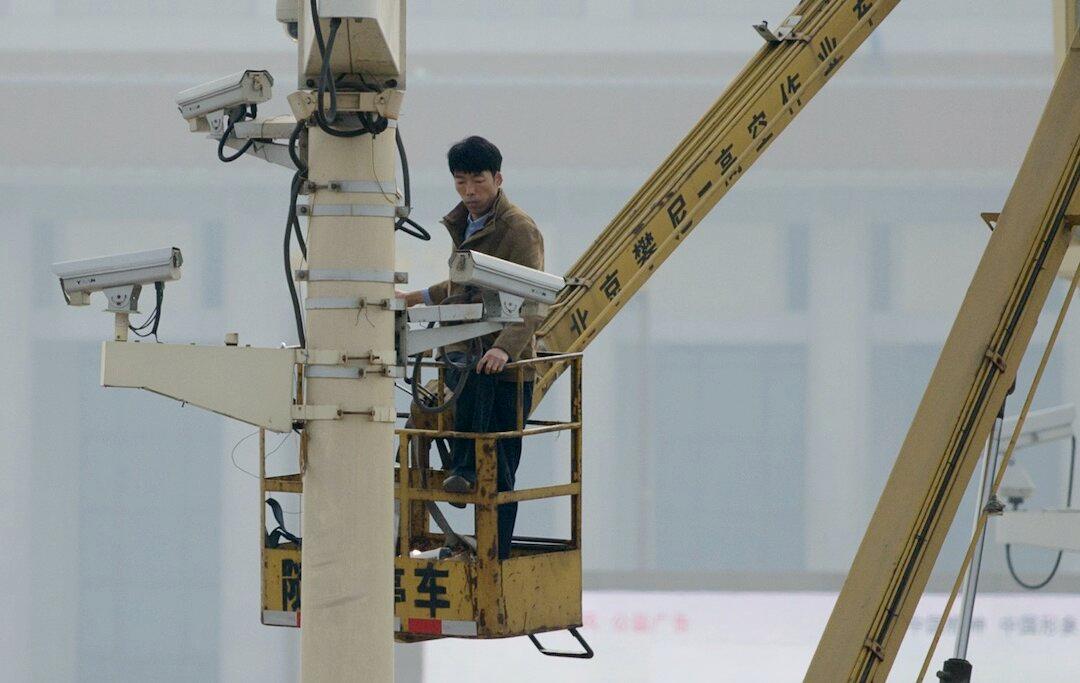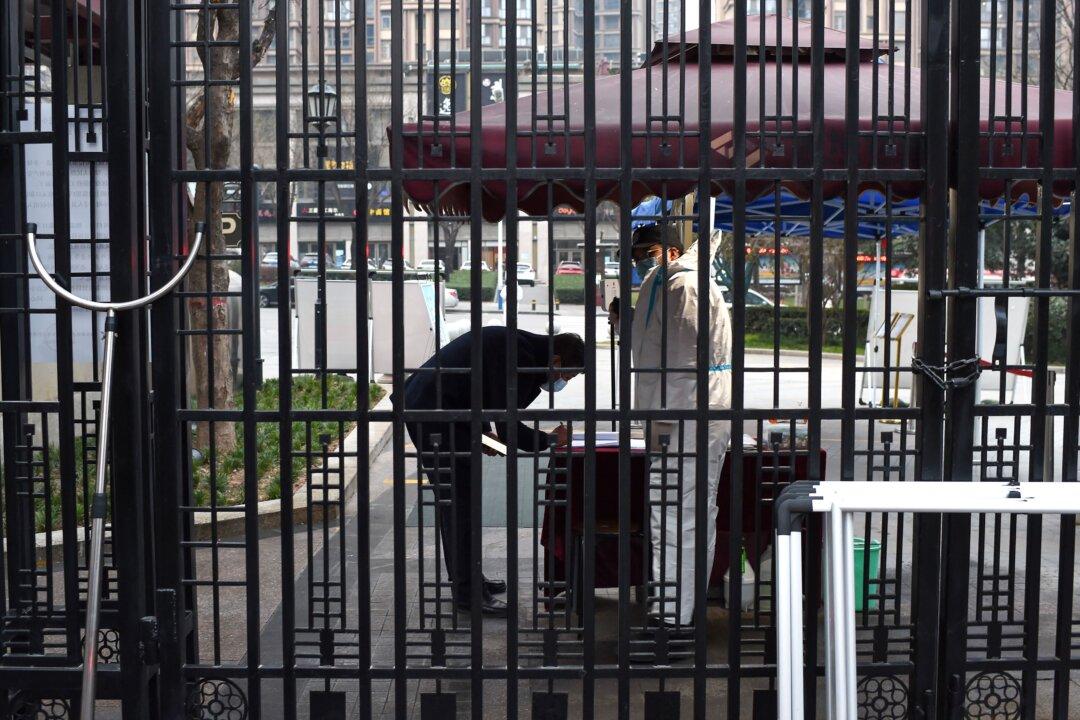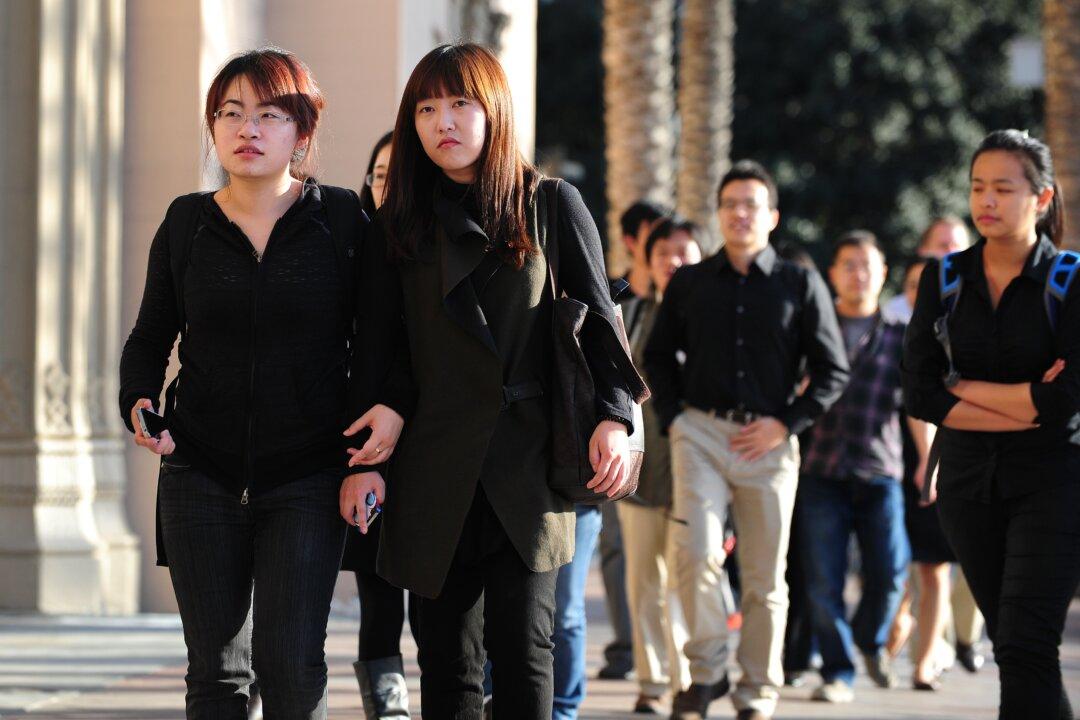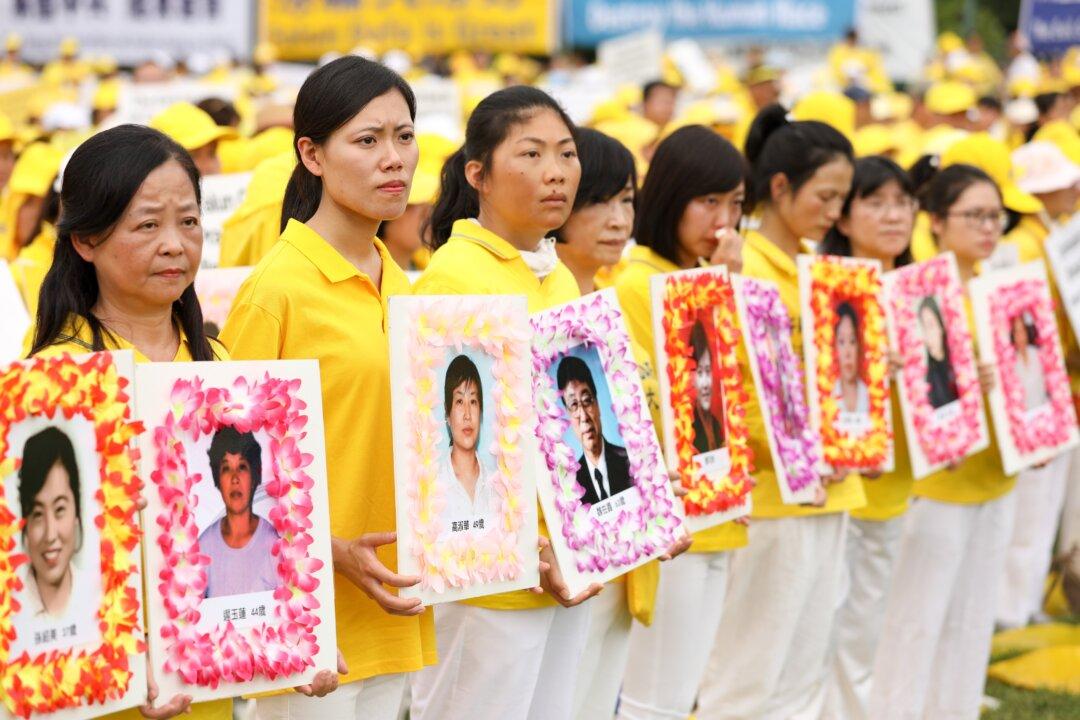Twenty-one years ago, the Chinese Communist Party (CCP) began its brutal persecution of Falun Gong and has not let up since. The Epoch Times obtained a series of internal government documents revealing how the Chinese regime has targeted Falun Gong practitioners over the years, and during the recent pandemic.
A meditative practice involving slow-moving exercises and moral teachings, Falun Gong quickly grew in popularity, to roughly 100 million adherents by 1999, according to official estimates at the time. Then-Party leader Jiang Zemin considered the group’s popularity a threat to the atheist regime’s rule, and in July 1999, launched a nationwide campaign to round up and throw practitioners into prisons, labor camps, and psychiatric wards in an attempt to coerce them into renouncing their faith.
Millions of adherents have been detained, with hundreds of thousands tortured, according to estimates by the Falun Dafa Information Center.
A Key Target to Be Contained
One document dated 2015, listed local key targets in the Rulin subdistrict of Beijing. Ahead of a world conference on the potato industry, two staff in the local government were assigned to monitor a Falun Gong practitioner surnamed Zhang, a resident of Shenfan Garden apartment complex. The names and contact phone numbers of the two staff were listed. Falun Gong was listed as a category to be monitored and the risk level classified as “unconventional.”
In a separate document, authorities later increased the number of staff to monitor the same Falun Gong practitioner, to four staff.
Another document listed “key targets” of the Shenfan Garden apartment complex. Falun Gong practitioners were placed in a category alongside other targets such as mental illness patients, people serving prison terms, people under criminal justice supervision, released inmates, petitioners (people who appeal their grievances to the government), and migrants. According to the document, 20 personnel take shifts to monitor the residential complex, with six assigned to supervise the key targets.

Tightened Surveillance on Important Days
The Epoch Times also obtained an internal notice issued by a district-level Political and Legal Affairs Commission (PLAC) of Beijing on Aug. 30, 2019. The PLAC is a Party agency that oversees security apparatuses, such as local prisons, courts, and police. Local PLAC offices are often tasked with carrying out the persecution of Falun Gong practitioners.This document from Mentougou district mandated 24-hour full coverage on the streets for the days of Sept. 30, Oct. 1, and Oct. 2, when the Party celebrated the 70th anniversary of its takeover of China.
The notice listed Falun Gong adherents as one group to be monitored and controlled during that period.
Another document recorded a Falun Gong practitioner surnamed Che was being followed by six assigned personnel in the Rulin area during the Two Sessions in 2017. The “Two Sessions” is an annual meeting of the CCP’s rubber-stamp legislature and its advisory body to enact policies and agendas.
The Party’s 19th National Congress was held in Beijing from Oct. 18 to 24, 2017. The conclave takes place once every five years, to determine the next succession of Party leaders.
A document regarding a “security work plan” during the meeting was issued by the Rulin local government on Sept. 22, 2017. The plan was deployed by the Ministry of Public Security (police) from August to October that year. It required that communities in Rulin fully cooperate by implementing strict control tactics such as “knocking on doors” and having “multiple stalkers on one target.” Daily meetings and discussion were required.
Surveillance in the Name of Pandemic
Most recently, on June 18, a set of documents from the “Safe Construction Office” of Changping district, Beijing revealed that authorities were targeting Falun Gong practitioners during the pandemic.In the first half of 2020, the office issued notices to prevent Falun Gong from “doing investigations or inquiries” about the local pandemic; prevent “infiltration” from Falun Gong practitioners, stop practitioners from “exploiting the pandemic for reverse propaganda,” according to the documents.
The report also explained that, during the Two Sessions held this year in late May, every “key target” Falun Gong practitioner was monitored by six personnel on a 24-hour watch, including two cadres in the neighborhood and practitioner’s family members, to ensure the practitioner is closely monitored at home and outside the house.
According to the report, the Chengnan sub-district of Changping organized two teams to monitor local Falun Gong practitioners. One consists of 21 specialist cadres and the other 30 full-time patrolmen.




